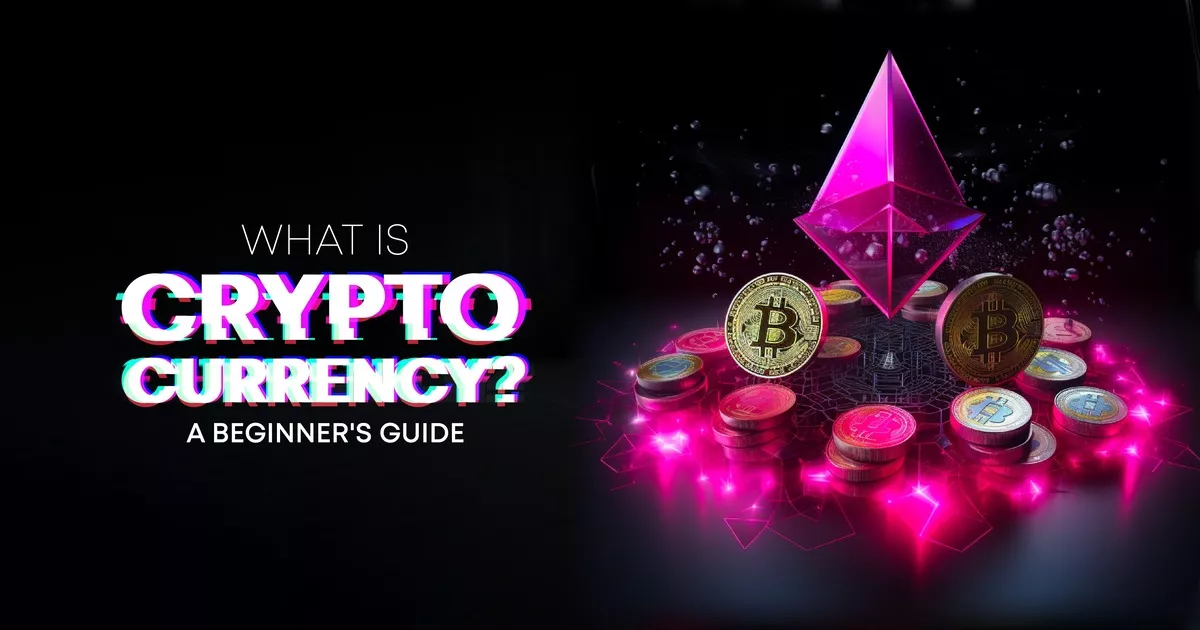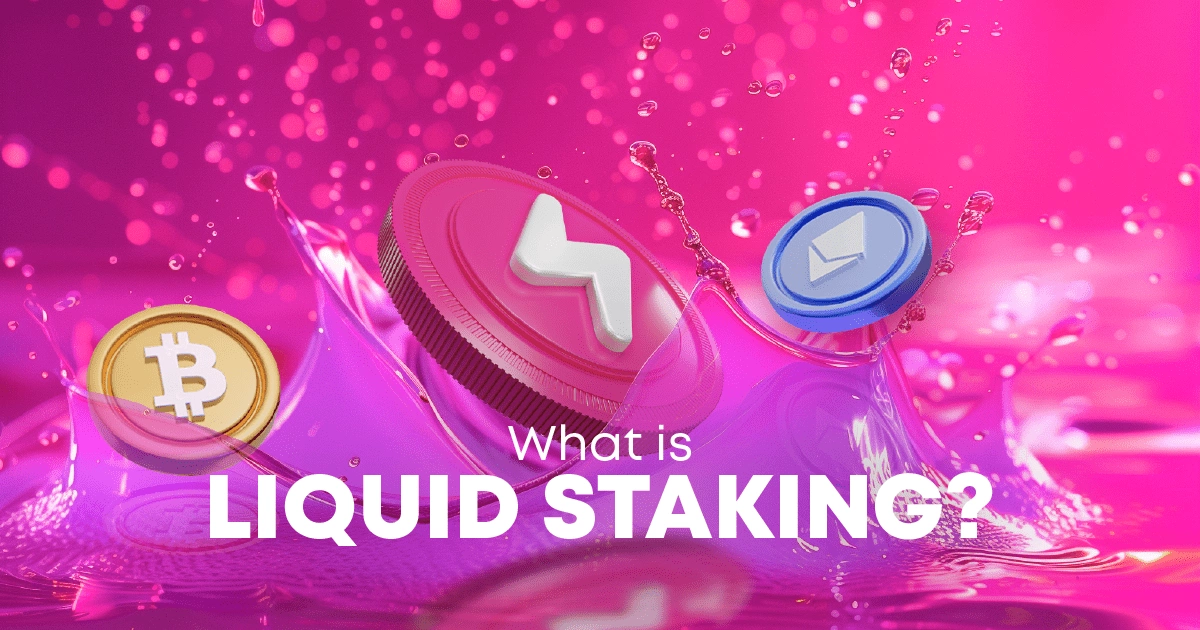
What is Cryptocurrency? A Beginner's Guide
Cryptocurrencies are known as digital currencies that work on decentralized blockchain platforms and are used as an umbrella term for diverse digital currencies. This means that cryptocurrencies are not controlled by any government or financial institution and thus provide peer-to-peer transactions on the network.
Cryptocurrencies are accessed through unique crypto wallets and despite popular opinion, they are stored on decentralized blockchains, not on wallets. You may think that the use of crypto is limited to serving as a means of exchange, however, their demand has grown up to smart contracts, NFTs (non-fungible tokens), DeFi and much more.
Simply put, this article will serve you as a cryptocurrency guide to better grasp the features of the innovation of the financial market.
How Cryptocurrencies Work
Cryptocurrencies use cryptography or to explain better, sophisticated mathematical algorithms as ultimate security measures. They help to provide secure and transparent data all over the network, as well as carry out fast and seamless transactions.
All the cryptocurrency transactions are verified and recorded on the blockchain by a network of computers called nodes. Each node on the network owns a copy of the blockchain, and new transactions are added to the blockchain in blocks.
On a typical centralized platform, transactions are carried out and approved by a central authority. Decentralized architecture allows individuals to make direct transactions and not be influenced by or depend on third parties. This eliminates the risk of fraud, malicious acts and penetration of scam artists.
Every blockchain uses a particular consensus mechanism. These are special programs to maintain distributed agreement about the ledger’s state and important for the integrity of the platform. The most popular consensus mechanisms in the world of blockchain are PoW (proof of work) and PoS (proof of stake).
Quick History Highlights of Cryptocurrency
So what is a cryptocurrency and how did it all start? The history of cryptocurrencies dates back to the early 2000s. Among the first currencies were Bit Gold and B-Money. In 2009, Bitcoin arrived and gave a start of a long and complicated cryptocurrency era.
In 2008, the mysterious Bitcoin white paper appeared on stage by a certain Satoshi Nakamoto - the so-called father of Bitcoin. A year later the technology became public and started the process of block creation and validation through mining.
Before the famous “pizza trade”, the currency had no value. The first crypto trading appeared in history, and in the coming years, we would see many altcoins pop up. People started to understand what cryptocurrency is and the price of Bitcoin reached 1000$ in 2013.
With the price of Bitcoin booming, there was also a lot of risk for scam. In 2014 the world saw the most massive Bitcoin crime. The largest Bitcoin exchange disappeared and 850,000 owners remained with no penny. Up to these days, no investigation has solved this criminal act. Bitcoin continues to grow and remains the absolute winner among the cryptocurrencies. One of the many reasons is its scarcity of supply. As of now, the price of Bitcoin is over $26.000.
It is notable that the only cryptocurrency that has ever come near Bitcoin, has been Ether so far. This currency implemented smart contracts and applications based on blockchain. Ethereum also introduced the initial coin offering (ICO).
Common Cryptocurrencies
You have probably heard many people use the words “crypto coin” and “crypto token” interchangeably. yet their differences are rather noteworthy. Let’s figure out why. Crypto coins are the native coins of their own blockchain. You can use them for traditional purposes like currency exchange, value storing, payments and transfers.
Unlike crypto coins, you can use tokens on top of an existing blockchain. These tokens offer many functions, like access to platform features or representation of a physical object.
Bitcoin (BTC) - Bitcoin is the most famous and leading cryptocurrency in the market, and we have already discussed the reasons. With a value worth more than 26,000 USD per piece, Bitcoin has been remaining the most valuable currency in the world.
Ether (ETH) - Ether is the second most popular cryptocurrency. Thanks to Ethereum and its smart contracts, nowadays thousands of blockchain platforms run in the market. Vitalik Buterin founded Ether in 2013, and 2 years later it went live and made a big technological revolution.
Fasttoken (FTN) - Fasttoken appeared in the world of Web 3 in 2017, as the native token of Fastex Chain. It went live in January 2023 as an ERC20 token, and now provides utility for Fastex ecosystem.
Litecoin (LTC) - Litecoin is one of the earliest altcoins (any coin different from Bitcoin) in the world. This cryptocurrency was founded by Charlie Lee, a well-known entrepreneur in this industry. It launched in 2011 and has preserved its steady place in the market unlike many other altcoins that have disappeared.
What Makes Cryptocurrencies so Popular?
Now it’s time to discover what’s the magic behind cryptocurrencies. Why are these financial units so popular and what stands behind the buzz?
- Financial inclusivity and accessibility
Cryptocurrencies do not need physical financial institutions. This guarantees privacy and more accessibility. They provide seamless cross-border transactions, loans with no intermediaries and better financial experience.
- Transparency and immutability
Every crypto transaction is recorded on the ledger and it is impossible to delete or change. This proves the transparency and inclusivity of cryptocurrencies and blockchain platforms.
- Lower transaction fees.
Cryptocurrencies are digital assets that can be transferred globally without restrictions. Bitcoin and Ether have rather high transaction fees, but there are many altcoins, great for everyday transactions. Many of them require a couple of cents to complete transactions.
- Potential for investment and high returns.
Cryptocurrency itself is today considered a very profitable and “trendy” investment. It also opens up very profitable investment opportunities in blockchain, payment systems, and NFTs.
Everyone speaks of NFTs these days, and investments can bring you high returns, as well as amazing experiences with a touch of “art.” On ftNFT Marketplace, for example, you can invest in NFT collections. At least one investment should bring you joy and excitement, right?
Challenges and Potential Risks
Despite their secure and transparent nature, such a famous digital asset cannot avoid scam attacks. Various regulations, media influence, supply and demand affect price fluctuations for popular cryptocurrencies.
Also, there can be many jurisdictional issues or attempts of data and money theft. Nonetheless, cryptocurrency demand only grows and these trivial problems don’t stop people from diving deeper into the crypto industry.
How to Get Started with Cryptocurrencies
Now that you are a crypto pro with lots of information, we can move to the practical part and discover how to get started with the crypto market.
- Setting up a cryptocurrency wallet.
The first thing you should get to is setting up a cryptocurrency wallet. Crypto wallets are the place where you can store, sell and buy cryptocurrencies. They are considered addresses on the blockchain where your information is safe and locked. There are many cryptocurrency wallets, but the most populars are Metamask, Coinbase wallet, Electrum, Blue Wallet, etc.
- Choosing a reliable cryptocurrency exchange.
Now it’s time to choose an exchange platform! Your best bet is to find a reputable and secure crypto exchange which you can do by analyzing and comparing customer support services, fees, interface and other vital information. You should have an account on crypto exchange. While the process may vary depending on the exchange, here's a step-by-step guide on how it typically works.
Related to How Crypto Exchanges Work.
- Buying and selling cryptocurrencies.
Once your wallet and crypto exchange account are fully set up and ready, you can start the crypto acquisition process. To buy a cryptocurrency, you need to deposit some amount to your crypto account and only after that you will choose between all the available cryptocurrencies. Many exchanges offer various cryptocurrencies to buy or sell, you should just think well and select what is best for you.
- Storing and securing cryptocurrencies.
As important as choosing a reliable crypto exchange, you should always have a safe place where you can store your digital assets, varying from exchange platforms to cold or hot wallets. If you trust the exchange platform, you can leave your wallet attached to the exchange. The other option is a hot wallet, which is connected to the internet and is handy for use. There are also cold wallets, said to be the most secure option of all, which are not connected to the internet and are kind of like a USB or hard drive.
Conclusion
Will cryptocurrencies come to replace the traditional financial system? Will they always remain a secondary option? A lot of mainstream companies and celebrities actually consider it interesting and it is likely to develop in many industries. Cryptocurrencies have revolutionized the traditional way of how we approach digital money, but its future is still blurry for many. It drives people to create many new and better technologies. We only hope that everyone will eventually start to understand how cryptocurrency works and we will witness its growth, global success and positive impact on our lives.
FAQ
- Is crypto real money?
Cryptocurrency is virtual money based on software. When you buy a cryptocurrency, it’s like owning an algorithm. Cryptocurrency is definitely different from “real money”. It was created to replace the traditional fiat payments, but still lacks backing, physical assets and enough volatility. However, crypto and real money are both used to exchange goods and services and you can invest in both.
- What is the main purpose of cryptocurrency?
Since its first appearance, cryptocurrency has followed one main philosophy - to let people authorize transactions between individuals with no third-party. Being in charge of personal financial assets encourages people to acquire crypto.
- What is ICO?
ICO or Initial Coin Offering is a fundraising method, mostly popular among startups. The owners of the new cryptocurrency raise funds before the public launch and the investors rely on the hope that it will grow.
Disclaimer: Includes third-party opinions. No financial advice.



